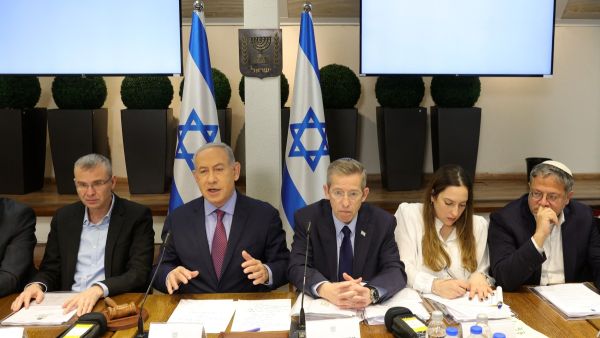ALBAWABA - The decision by Israeli Prime Minister Benjamin Netanyahu to keep important details of a planned ceasefire accord from his own ministers has caused some controversy inside the cabinet.
Given the delicate nature of the situation, Netanyahu has chosen to keep details about possible hostage and prisoner swap discussions and the end to the fighting in Gaza under wraps.
Israeli broadcasting authorities said that the negotiation team declined to share with the enlarged government ministers the details of the planned ceasefire, allegedly at the express request of Netanyahu and his cabinet throughout the conflict.
Netanyahu's move was motivated by worries that hardline right-wing ministers like Itamar Ben Gvir and Bezalel Smotrich would reject the deal and even carry out their threat to quit the cabinet, which would bring about its collapse.
Although the suggested ceasefire agreement originated from Israeli officials, US President Joe Biden made the news in public. Since then, the US has made it clear that, should Hamas agree to Biden's proposed gradual ceasefire, they also expect Israel to follow suit.
Biden presented the proposal on Friday. It begins with a six-week phase in which all Israeli soldiers are to withdraw from populous areas of Gaza, coupled with a hostage and prisoner swap.
Netanyahu is under a lot of pressure from inside, voicing misgivings about Biden's suggestion and reiterating Israel's determination to fight until Hamas is vanquished and all captives are freed.
Ofer Golan, Netanyahu's top foreign policy adviser, provided a another viewpoint, stating that the Israeli government had accepted Biden's plan in spite of its flaws in the hopes of obtaining the release of all captives.









